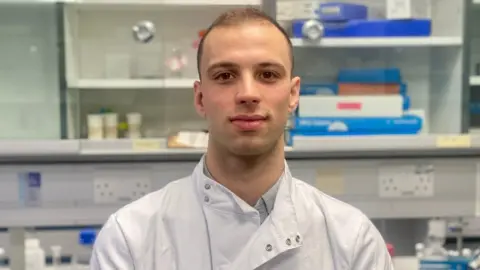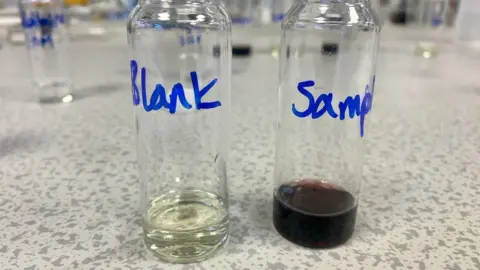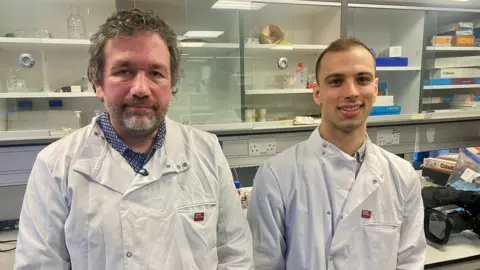UWE student and lecturer devise drink-spiking test
 BBC
BBCA student and lecturer have designed a test to detect when date rape drugs have been put in drinks.
Anselmo Procida has been working on the project with Dr Kevin Honeychurch at the University of the West of England (UWE).
Their test uses a smartphone app to determine how much of the drug GHB is present in a drink.
The duo hope their work could one day be used in hospitals and by police.
Mr Procida, a forensic science student, came up with the test as part of his final-year project and has been helped by senior chemistry lecturer Dr Honeychurch.

The drug GHB can be identified by taking a photograph of a drink and using an app to check its colour, following the addition of a chemical reagent.
If the app detects a particular concentration of purple then it indicates that the drink is likely to contain the drug.
"A mobile version of this experiment could be made which could be used in an A&E or police setting to analyse the content of a drink to find out if the beverage has been spiked and how much it has been spiked with," said Mr Procida.

Dr Honeychurch said he had been impressed with his student's work on the project.
"Normally this would have been more like masters level to get to the point and to actually publish a paper in a forensic journal - we've done very well indeed," he added.
Nationally there were nearly 5,000 suspected cases of spiking last year and police currently rely on urine or blood tests to prove if an offence has taken place.
Ch Insp Emma MacDonald, of Gloucestershire Police, said they welcomed the new way of testing as spiking was something they were trying hard to combat.
"It's a really serious matter and if convicted at court you could face up to 10 years in prison for committing an offence like that," she added.

Follow BBC West on Facebook, Twitter and Instagram. Send your story ideas to: [email protected]
